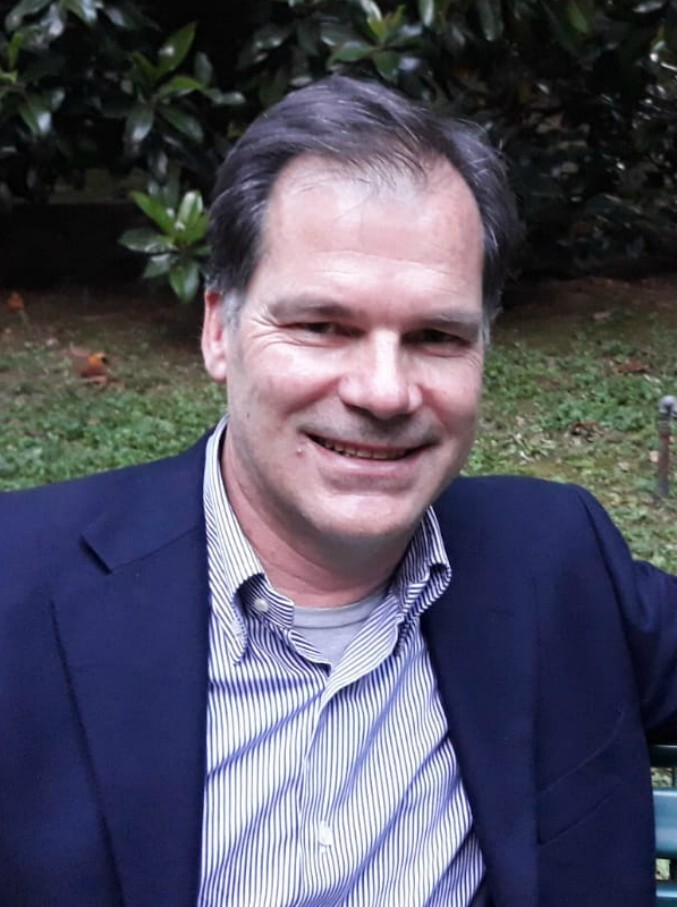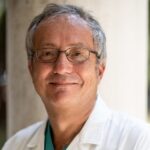Medical doctors and Surgeons
Emotional support following breast cancer diagnosis
A breast cancer diagnosis can be a very difficult moment for patients. It comes down to the doctor to tackle the challenge of communicating the news while offering emotional support throughout their journey. Dr. Stefano Mancini, breast surgeon specialised in general surgery, microsurgery, experimental surgery and responsible for the Operational Unit for Breast Surgery at the Fatebenefratelli Sacco Hospital in Milan, explains how medical it is to enter the quintessential sphere of femininity.

«When having to face a breast cancer diagnosis, which can entail more or less invasive procedures, the emotional, psychological and personal impact is often quite strong, almost violent – explains Mancini -. Communication becomes a crucial moment. I have often seen patients struggle more with accepting a tumour found in the breast, compared to the tumour in the stomach of lungs. Despite the latter being a lot more deadly and dangerous».
Communication is always important and it goes through two phases. Firstly, conveying information, which must be rigorous, scientific and precise, using terminology that the patient can understand. This, in fact, should not be burdened with additional difficulty from complex concepts. They can be often hard to accept and understand. Especially when the diagnostic and therapeutic process is not straightforward.
«You must be available to listen. Hence it’s important to sometimes stop talking and let the patient express their doubts or needs – the doctor continues -. It must always be a multi-directional communication, with a strong focus or listening, with the possibility of asking questions, answering, but also reiterating. It can be necessary, in fact, to have more than one opinion on things that have already been explained even in a complete way».
Sympathising with breast cancer diagnosis
As a breast surgeon, Dr. Mancini goes beyond his passion for pursuing his oncological surgery journey, especially when it relates to the mammary pathology. There’s also a strong component of human interaction and connection. He establishes a professional relationship with patients to allow for a correct treatment, but never at the expense of connecting and listening to them on an emotional level.
«Often patients carry with them their relationships and experiences, this helps enrich the emotional exchange. Sometimes a patient is more complex, more unhappy, however, this can happen when trying to provide emotional support. Positioning oneself as an active listener can help a lot. Developing a rapport with patients can be extremely valutable», confirms Dr. Mancini.
The support that we try to provide is the result of a synergy. It’s a team effort. In fact, there are many important professional figures who help throughout the journey, all of whom help achieve the best results.
Technology and progress in diagnosis
Breast surgery is a field that continuously envolving, which is always innovating diagnosis and treatments. From contrast-enhanced mammography to the increasingly extensive use of cutting-edge techniques. «The technology is constantly getting better, and being perfected. I believe we may soon have the help of artificial intelligence. Of course it wouldn’t replace doctors, but assist them and help them make important and heavy decision», declares the doctor.

On the therapeutic front, beyond the progress made in oncological therapy, there are also some promising results emerging in the field of surgery. The goal is to reduce the invasiveness of procedures without affecting the outcome. All of this is accompanied by an appropriate therapeutic pathway involving reconstructive and oncoplastic surgery. The latter has now become essential in supporting the surgeon even in less significant procedures.
«Finally, another crucial field to consider is genetics. In order to identify people who are more at risk of developing breast cancer and also other tumours. Thy can be better classify and thus address patients to the right kind of treatment», concludes Dr. Mancini



































